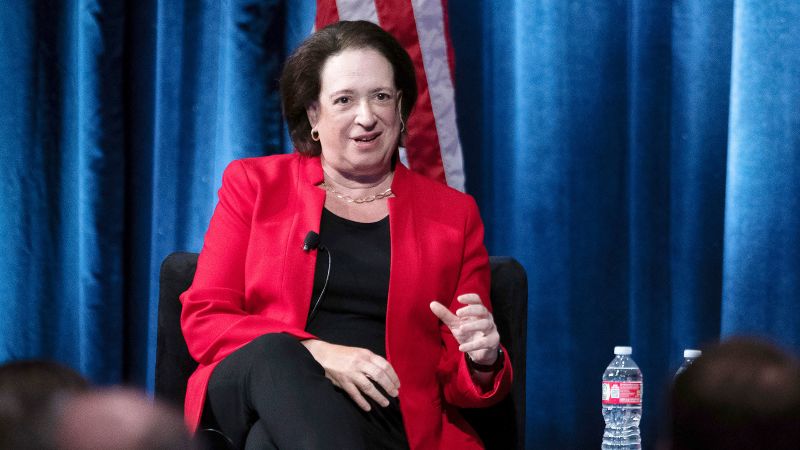Justice Elena Kagan has advocated for an enforceable code of ethics for the Supreme Court in order to maintain public confidence in the institution amid a decline in trust among Americans. She believes that having an ethics code that is enforceable would ensure compliance and transparency, acknowledging that it would be beneficial for the court and the public. Kagan initially expressed her support for an enforceable ethics code in July at a judicial conference, stating that it would be more effective if enforcement was not left up to individual justices.
President Joe Biden has also called for an enforceable code of conduct for the Supreme Court following a series of ethics scandals involving justices accepting private jet travel and vacations from GOP donors without disclosure. However, the efforts to implement ethics reforms have faced resistance from congressional Republicans, who view it as a response to conservative outcomes in court cases. A recent poll found that a majority of Americans disapprove of the Supreme Court and believe that the justices’ decisions are motivated by politics rather than the law.
Justice Ketanji Brown Jackson, Biden’s nominee to the Supreme Court, has also expressed support for an enforceable code of ethics. Jackson believes that a binding code of ethics is standard for judges and sees no reason why the Supreme Court should be exempt from such measures. Kagan echoed similar sentiments, suggesting that an enforceable code could ensure accountability among the court members and maintain public trust in the institution.
In addition to advocating for an enforceable code of ethics, Kagan has raised concerns about the increasing number of cases on the Supreme Court’s emergency docket, also known as the “shadow docket.” This docket deals with urgent questions that require quick resolution, leading to orders with immediate real-world consequences. Kagan emphasized the need for restraint in granting emergency petitions, recognizing that it may not be the best way for the court to handle legal matters but acknowledging the importance of addressing urgent issues promptly.
Despite criticism from some quarters, including accusations of treason for supporting an enforceable code of ethics, Kagan and Jackson remain steadfast in their belief that such measures are necessary for upholding the integrity of the Supreme Court. They argue that implementing an enforceable ethics code would not only promote transparency and accountability but also help restore public confidence in the judiciary. The debate over ethics reforms and the court’s emergency docket continues to be a topic of discussion within the legal community and among the justices themselves.


